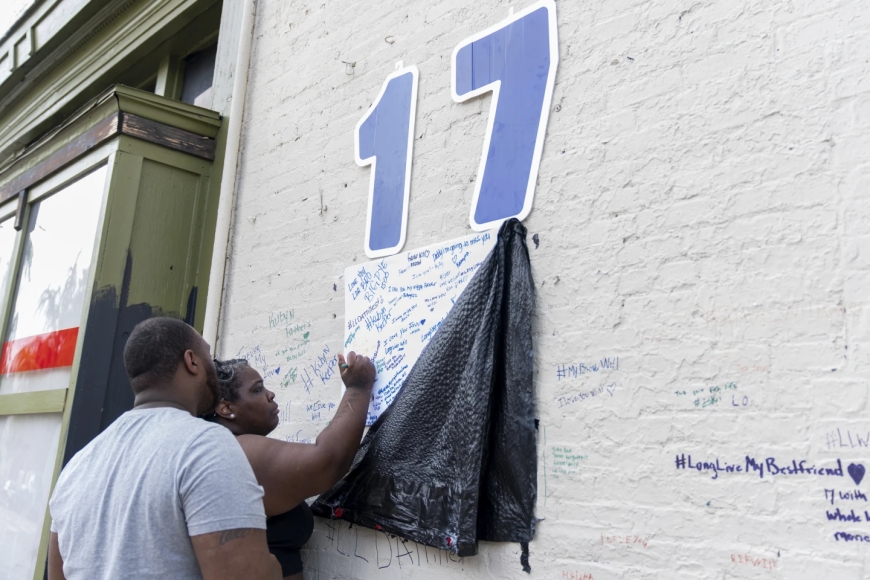Baltimore Teen's Death in Police Shooting Sparks Community Outrage and Demands for Justice

The shooting death of a 17-year-old boy by Baltimore police on Monday night has ignited a wave of anger and grief in his southwest Baltimore neighborhood. Residents are questioning the use of lethal force against the teenager, who they say was unfairly targeted and gunned down in what many view as the latest instance of excessive force by law enforcement.
The shooting occurred when police officers, patrolling the area, spotted the teenager and believed he exhibited "characteristics of an armed person," according to Baltimore Police Commissioner Richard Worley. The teen reportedly fled when officers attempted to engage with him, leading to a brief pursuit and struggle. Worley stated that three officers opened fire after realizing the boy was armed, and a loaded handgun was recovered at the scene. However, details surrounding the shooting, including whether the teen pointed the gun at officers or if he was given any verbal warnings before shots were fired, remain unclear.
Authorities have not released the teen's identity, citing juvenile privacy laws, but local residents and loved ones have identified him as a familiar face in the community who often picked up work at a nearby convenience store. A makeshift memorial has been set up at the corner where he was killed, with candles, balloons, and handwritten messages from those mourning his death.
The boy's mother, Myreshia Macon, expressed her devastation and frustration over the lack of transparency from police. "I’m just broken. Broken and upset," she said. "The same way they’re keeping the public out of the loop, they’re keeping me blindsided, too. I don’t know nothing."
The incident has drawn comparisons to other police shootings in Baltimore and across the nation, where the use of deadly force against young Black men has sparked widespread protests and calls for reform. Residents like Taavon Bazemore, who has a personal history with police violence after losing a cousin in a 2001 police shooting, voiced concerns over what they see as a double standard in how law enforcement handles such encounters.
“They didn’t just kill him—that was overkill,” Bazemore said. "Y’all using a whole lot of force for no reason. He shouldn’t have had a gun, but that don’t give you the right to kill him."
Peggy Kallon, who operates a corner store near the shooting site, echoed the community's sentiments, highlighting the tragic loss of a young life. "He was a good kid," she said. "Seventeen years old and they just shot him like that. … I’m speechless."
This shooting has brought renewed scrutiny to the Baltimore Police Department, which has been under a consent decree and implementing reforms since the 2015 death of Freddie Gray, a Black man who died in police custody, sparking nationwide protests. Despite these reforms, many residents in Baltimore's majority-Black neighborhoods feel that little has changed in how police interact with their communities.
As the Maryland Attorney General's Office begins its investigation into the shooting, the community is left grappling with the loss of another young life and demanding accountability from the police force that is supposed to protect them. The release of bodycam footage and further details about the shooting will be crucial in addressing the community's concerns and determining whether the officers' actions were justified.













































